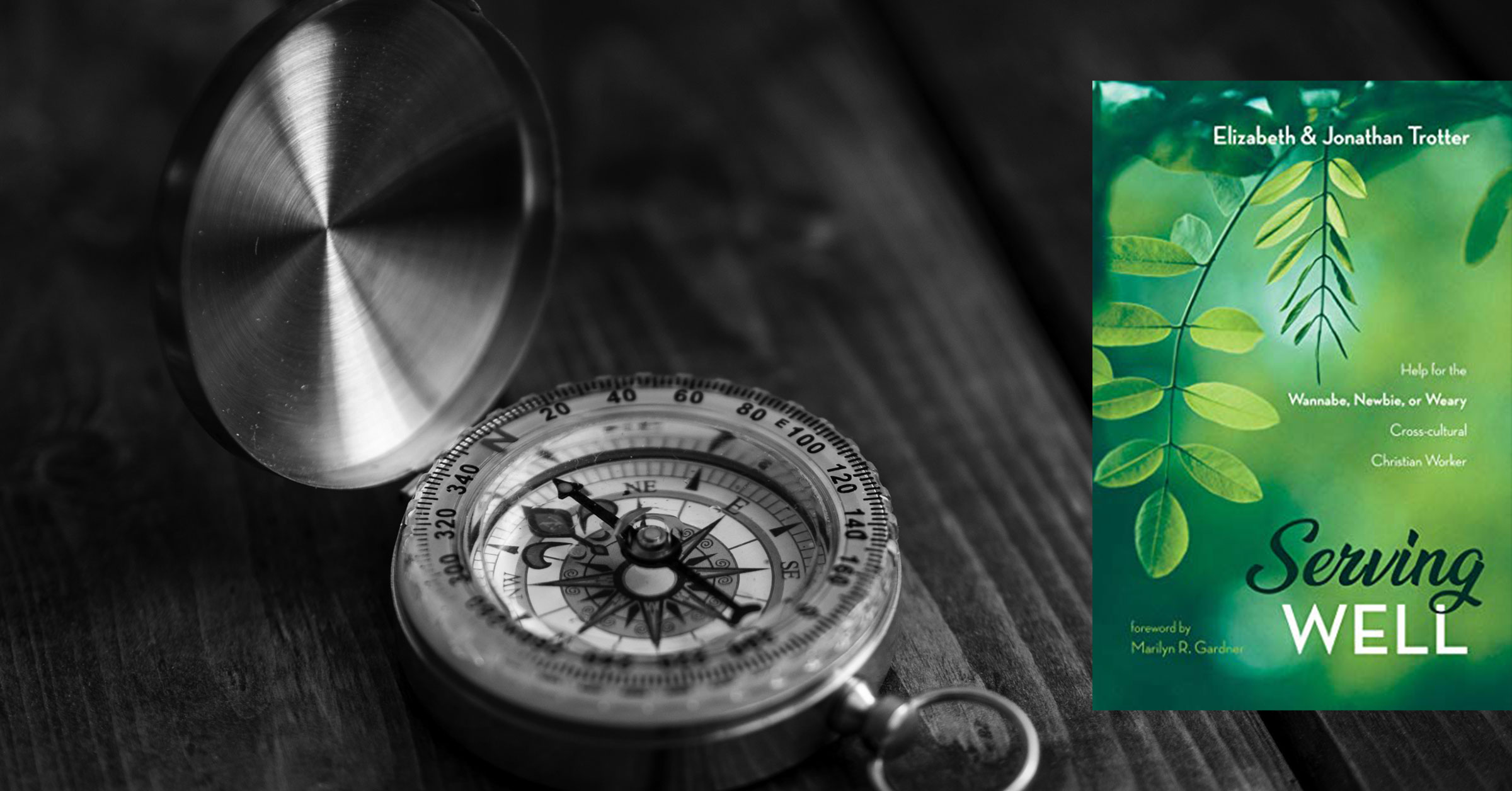Book Review | Serving Well: Help for the Wannabe, Newbie, or Weary Cross-Cultural Christian Worker

Book Review | Serving Well: Help for the Wannabe, Newbie, or Weary Cross-Cultural Christian Worker
Book Review | Serving Well: Help for the Wannabe, Newbie, or Weary Cross-Cultural Christian Worker
Book title: Serving Well: Help for the Wannabe, Newbie, or Weary Cross-Cultural Christian Worker
Authors: Jonathan and Elizabeth Trotter
Publishing information:Eugene, Resource Publications 2019
Number of pages: 378 pages
A book for missionaries who need encouragement
“It’s not always an easy road, but it can be a good one,” write the Trotters in the introduction of their book.
To be a good missionary, you need to be a healthy Christian human being. This is what authors Elizabeth and Jonathan Trotter want to contribute to building. Anyone – even those not moving to the foreign field as missionaries – who endeavors to be a healthy Christian human being will benefit from the easy to digest chapters contained in Serving Well: Help for the Wannabe, Newbie, or Weary Cross-Cultural Christian Worker. The conventional way to read this book is to start at the first page and read straight through to the last. But I think the way I read it was much more fun and, maybe, practical. Go to the table of contents and pick a chapter. The chapters have catchy titles and may hit you differently depending on where your head is on the particular day of the week you open up the book. That’s a really fun way to read this book. And you’ll get as much, if not more out of this book of you do it that way. Work it into your daily quiet time and read a chapter a day along with your daily bible study. It will be interesting to see how connections are made.
Read the chapter called “The Gaping Hole in Missions”. This chapter is about reading Psalms, “the prayer book of the Bible,” Jonathan Trotter calls it, “the book most often quoted by Jesus himself.” In this chapter, Jonathan shows us how the Psalms are lacking in our communities and churches and he makes a case for including the Psalms in our daily lives and family interactions. “Full immersion is needed,” he writes.
“We need the Psalms; not because they will teach us how to be super Christians, but because they teach us how to be human Christians.”
Another chapter where Jonathan explores Psalms is the one called Develop Deeper Emotional Intelligence where he writes, “life is lived and people are loved on street level, not the lecture hall.” He also writes, “When we approach a hurting, lost world with brains first, we risk showing a skewed image of Christ. We need our hearts, too.” I read this chapter in my quiet time this morning and plan on reading it to a group that I will be giving a devotional talk to at the end of this month.
Elizabeth writes a practical chapter to Wannabe Missionaries called How to transition to the Foreign Field and Not Croak. This is a must read. Must. Here are the six topics covered in this section:
- Being underfunded
- One spouse doesn’t feel called into missions
- Marriage/personal problems
- Pornography/sexual sin
- Team stress
- Not getting enough pre-field training
The fastest track to failing as a new missionary is avoiding reading this chapter. I wish someone sat me down to read this chapter before I went to the field with no training and no thought given to the six topics Elizabeth covers. This is information every Wannabe Missionary must chew on before heading to the field. It’s a short chapter, but it will help the missionary and those that care for missionaries map out a missionary’s pre-field preparation identifying chinks in the Wannabe Missionary’s armor. Buy this book for this chapter alone.
There are a number of books written by couples, but husband and wife tag team Elizabeth and Jonathan write so naturally together the flow makes sense, is interesting, and inspiring. As I read through it, I was compelled to stop and toss up one of those quick prayers that sounded something like, Lord, help me to change and be as serious and fruitful as the Trotters. (I read piles of books, and prayer is something that I find myself doing as I read, but I’ve never really told anybody.) This book has made me pray and want to do better.
The Trotter’s are both accessible and wise beyond their years.
Whether you’re a salty, well-worn missionary about to burn out or brand new, full of vision and vigor, you’re the reader the Trotter’s had in mind when they compiled their articles, notes, and lectures into this fantastic resource.
The bibliography at the end of each chapter is a tremendous resource for a deeper dive into the topics the Trotters cover. This book will be one I recommend often.
» Interview with the Trotters part one
» Interview with the Trotters part two
